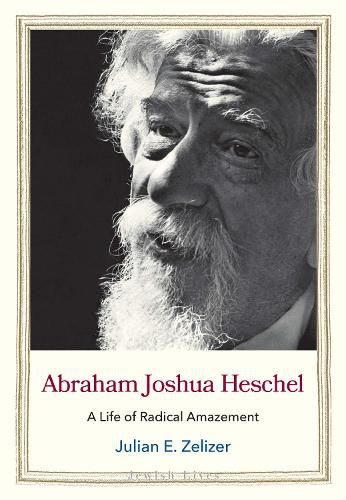Readings Newsletter
Become a Readings Member to make your shopping experience even easier.
Sign in or sign up for free!
You’re not far away from qualifying for FREE standard shipping within Australia
You’ve qualified for FREE standard shipping within Australia
The cart is loading…






A biography of the rabbi Abraham Joshua Heschel, who became a symbol of the marriage between religion and social justice
When I marched in Selma, I felt my legs were praying. So said Polish-born American rabbi Abraham Joshua Heschel (1907-1972) of his involvement in the 1965 Selma civil rights march alongside Martin Luther King, Jr. Heschel, who spoke with a fiery moralistic fervor, dedicated his career to the struggle to improve the human condition through faith.
In this new biography, author Julian Zelizer tracks Heschel’s early years and foundational influences-his childhood in Warsaw and early education in Hassidism, his studies in late 1920s and early 1930s Berlin, and the fortuitous opportunity, which brought him to the United States, to study at Hebrew Union College and teach at the Jewish Theological Seminary. This deep and complex portrait places Heschel at the crucial intersection between religion and progressive politics in mid-twentieth-century America. To this day Heschel remains a symbol of the fight to make progressive Jewish values relevant in the secular world.
$9.00 standard shipping within Australia
FREE standard shipping within Australia for orders over $100.00
Express & International shipping calculated at checkout
A biography of the rabbi Abraham Joshua Heschel, who became a symbol of the marriage between religion and social justice
When I marched in Selma, I felt my legs were praying. So said Polish-born American rabbi Abraham Joshua Heschel (1907-1972) of his involvement in the 1965 Selma civil rights march alongside Martin Luther King, Jr. Heschel, who spoke with a fiery moralistic fervor, dedicated his career to the struggle to improve the human condition through faith.
In this new biography, author Julian Zelizer tracks Heschel’s early years and foundational influences-his childhood in Warsaw and early education in Hassidism, his studies in late 1920s and early 1930s Berlin, and the fortuitous opportunity, which brought him to the United States, to study at Hebrew Union College and teach at the Jewish Theological Seminary. This deep and complex portrait places Heschel at the crucial intersection between religion and progressive politics in mid-twentieth-century America. To this day Heschel remains a symbol of the fight to make progressive Jewish values relevant in the secular world.